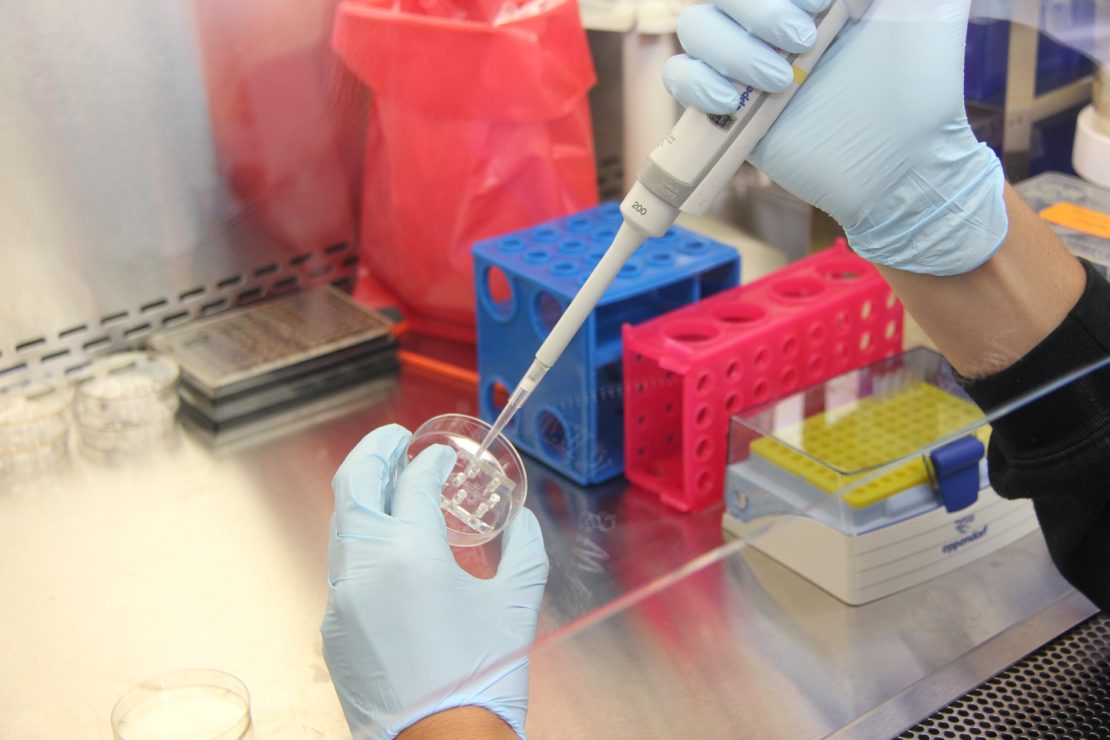
In the wake of the Black Lives Matter (BLM) movement, two UVic undergraduate students noticed a marked absence of engagement with racism and its role in the world of science. As two undergraduate research assistants at UVic’s Baum lab, Brittnie Spriel and Rebecca Hansen noticed anti-racism discussions taking place. The two felt fortunate to be in an environment of a lab where that kind of discussion was happening — but mostly at the graduate level.
“We were noticing a need for a platform and outlet for people to share their perspectives and so we decided to make an initiative that is more undergraduate-focused,” says Spriel.
In an effort to address the lack of equity, diversity, inclusivity (EDI) work at the undergraduate level, the two wanted to hear from the student population themselves. They gathered a group of undergrads — six and counting — as well as the course unions in the Faculty of Science to bring their concerns forward to UVic.
They also created a survey to gather ideas on potential actionable forms of EDI work, whether in the form of workshops, curriculum changes, or policies.
The idea came after Spriel and Hansen noticed discussions about racism in the science world on Twitter, where there was a kind of collision between the BLM movement and the sphere of academia.
“There were a lot of profs and academics speaking about how little science has dealt with the social side of the scientific world,” says Hansen.
The undergraduates are optimistic about the potential for EDI initiatives in the faculty, and response from other students has been positive so far.
“So far, we’ve just had so many insightful and really brilliant comments — so many people reaching out,” says Spriel.
The principal investigator and director for the Baum lab is Dr. Julia Baum, a biology professor in the Faculty of Science. The lab researches the effect of the human population on marine ecosystems, and the broader implications of this for people, the environment, and its conservation.
“In some sense, discussions of anti-racism might seem far away from marine ecology,” says Baum. “But I think that this issue is overarching over everything that we do. Whether we be researchers or citizens, I think we all have a responsibility to learn more about systemic racism in academia, as well as within our broader society.”
Baum believes that change needs to occur at the structural and institutional level before deeper issues of systemic and embedded racism can be addressed.
“I think a lot of faculty still don’t regard antiracism work as a priority at this point in time, and I think that’s a huge impediment to moving forward. For that reason, it’s imperative that we have strong leadership on this from the upper level at the university,” says Baum.
That’s where the Faculty of Science’s recently installed dean, Peter Loock, comes in. Spriel and Hansen say one of their core goals was to speak directly to Loock about EDI initiatives and the specific forms EDI could take in the faculty itself.
The students say the new dean has expressed a willingness to engage in discussions on how EDI initiatives can take place in the faculty. In an email statement to the Martlet, Loock cited his desire to engage in EDI work as one of the very reasons he felt compelled to join UVic.
“We scientists like to think of ‘science’ as pure and above the fray, but scientists are as much a product of their societies as anyone else,” said Loock.
Agreeing with Baum that structural approaches to deconstructing the racism embedded in science are needed, Loock says the faculty’s work will take several forms like anti-racism workshops, shifts in curriculum content, and general climatic shifts within the faculty that make inclusion a priority.
As for Spriel and Hansen’s EDI initiative itself, Loock believes the project is a sign of students’ willingness to engage in reflection on the role of scientists to create spaces for diversity and inclusion.
“I am impressed with the student initiative on raising EDI-issues at the Faculty of Science. I think their initiative can support our efforts to create a more equitable, inclusive and diverse curriculum and contribute to our conversation on how to promote inclusive teaching and learning,” said Loock.
Loock’s willingness to engage in EDI work makes Spriel and Hansen optimistic.
“It’s really positive to see how much support there is for these issues on campus and how willing the dean is to have these conversations — because you need the ground support, and you also need the people who are working with the system,” Hansen says.
They encourage any students enrolled in the Faculty of Science who are interested in contributing to the dialogue on EDI work at the faculty level to reach out to them before the end of the summer.






